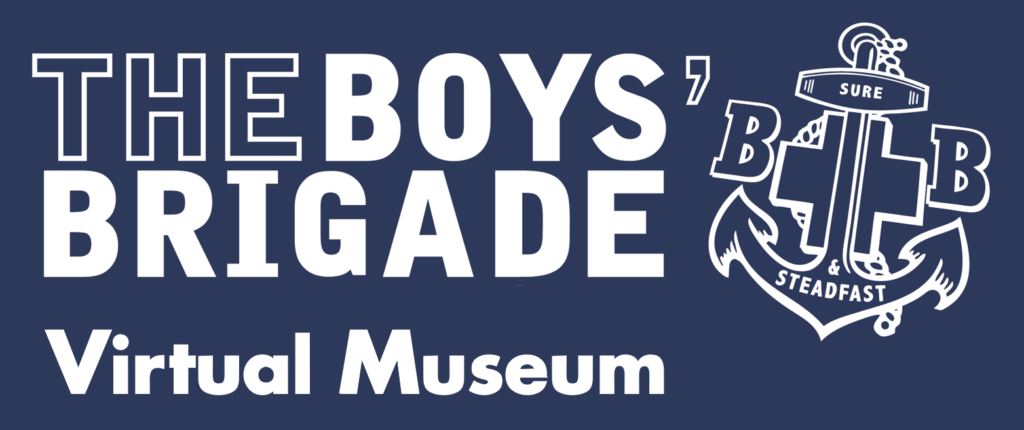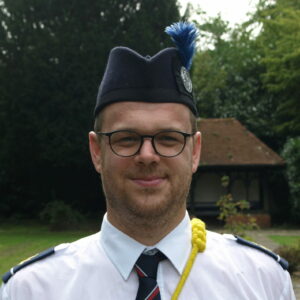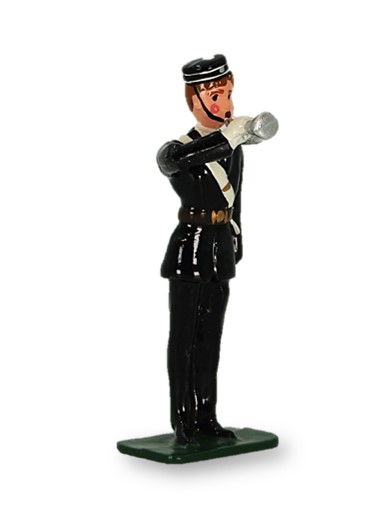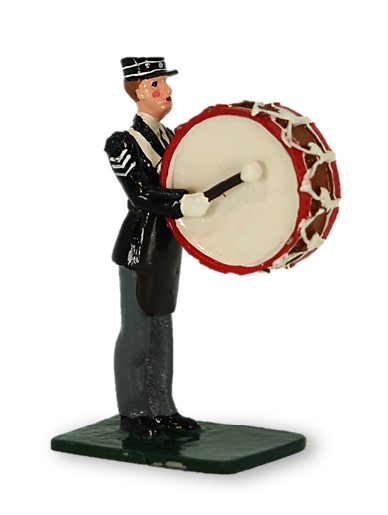1951 – London Display
A Stronghold Most Gracefully Stormed: Princess Elizabeth and the Festival of Boyhood
Wearing a white satin gown, ermine wrap, and a white fur evening coat, Princess Elizabeth walked to the stage of the Royal Albert Hall in May 1951 to deliver her address to the audience of the annual demonstration of The Boys’ Brigade. Princess Elizabeth – the first female Chair in the long and prestigious history of the display – provided words of support for the movement she would later bestow the privilege of becoming Patron. The future Queen presided over the Friday evening display (the first of three sessions held over a two-day Festival of Boyhood) with the presence of the Princess raising the status of an already special occasion.
The two-day programme of events contained the usual impressive array of performances, with the final of The Daily Telegraph Shield – presented by Princess Elizabeth to the 1st New Barnet Company – the premier activity of the Friday evening. It was a close competition, with Captain J. W. Scott of the Grenadier Guards judging the 1st New Barnet (182 points) the victors over the 1st Enfield (178). The Admiral of the Fleet, The Lord Tovey, acted as chairman for the televised Saturday afternoon display, with Sir Wavell Wakefield, M.P. the chair for the third and final performance on the Saturday evening. The Boys’ Brigade was fortunate to have three prestigious guests to chair each of these displays at the Royal Albert Hall which added further significance and status to proceedings.
To have the young Princess as chair was a real privilege for The Boys’ Brigade, with The Princess Elizabeth joining a host of Royal chairmen of the past. This impressive list included her father (as The Duke of York in 1935), and two of her uncles (The Prince of Wales in 1926 and Prince Henry in 1921). However, where the Princess broke new ground was as the first female chair of the long-running display. Major-General D. J. Wilson-Haffenden – London President – commented that “another male stronghold had been stormed this evening” adding that the “stronghold has been most gracefully and most charmingly stormed”. The Royal Albert Hall display would not have to wait long for a second female chair, with H.R.H The Duchess of Kent undertaking duties the following year. Furthermore, a standard had been set across The Boys’ Brigade, with the August issue of The Boys’ Brigade Gazette carrying a story of another female chair of a Brigade event, this time in the form of Colonel V. M. McRobert of the Women’s Royal Army Corps, who was the Inspecting Officer for the 21st Annual Display of the 6th Hartlepool Company. The Princess was, therefore, an inspiration and role model for women in The Boys’ Brigade, helping alter long-established views on women at this and similar events.
When Princess Elizabeth rose to deliver her address as Chairman, she received a great ovation from the audience of over 3,000 spectators. In her speech, the Princess told the thousands in attendance of the important need The Boys’ Brigade filled for the nation. In doing so she offered signs of the future relationship the Brigade could expect from what would be their long-serving patron. Princess Elizabeth told those present that “In spite of wars and fundamental changes in the order of society, The Boys’ Brigade is as vigorous and vital to-day as it has ever been” adding that “The Boys’ Brigade has always kept up with the times and has adapted its work to changing conditions”. The Princess continued, noting that “I am sure it will continue on its successful path for many years to come.” There was, therefore, a parallel between The Boys’ Brigade – as an organisation that adapted to change – and the Princess, who was a pioneer for women in the ‘BB’.
Less than one year after her attendance at the Royal Albert Hall display Princess Elizabeth inherited the throne from her father to become Her Majesty The Queen. Soon after her Accession, The Queen accepted the Office of our Patron, and graciously bestowed her title to the Premier Award of The Boys’ Brigade ‘The Queen’s Badge’. The award has been given to thousands of Boys during a long and prosperous reign, and has given a drive and impetus for Senior Boys throughout the Brigade. Through the course of the second half of the twentieth century, and into the twenty first century, Queen Elizabeth II would be a valued patron to The Boys’ Brigade. The tone and nature of this relationship was clearly demonstrated by the young Princess at the Royal Albert Hall in 1951, where it was clear the future Queen had great respect and admiration for the aims and objectives of The Boys’ Brigade.
